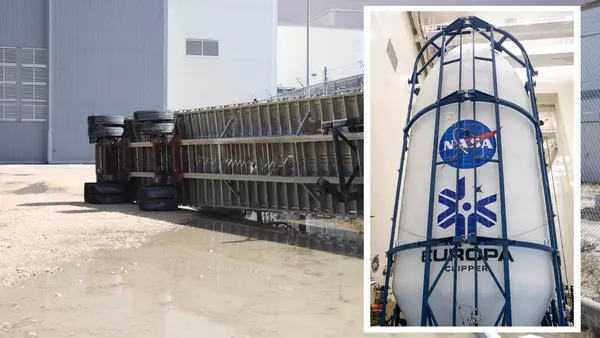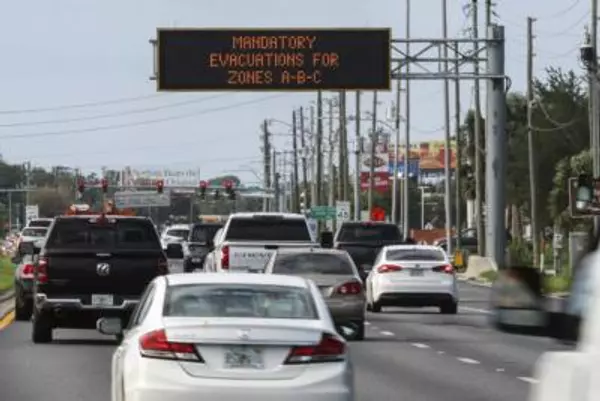
The Coalition and Labor are set to make major defence announcements on Thursday as both parties seek the upper hand on the electoral battlefield of national security.
Anthony Albanese will consider fitting tomahawk missiles to Australia’s existing fleet of Collins class submarines if he wins the upcoming federal election. The Labor leader will on Thursday vow to ensure the defence force “has the resources it needs to defend Australia and deter potential aggressors”.
As the opposition leader attempts to neutralise the Coalition’s political attack on Labor over national security, the government will also on Thursday make its own pledge to significantly ramp up the number of defence personnel over two decades.
The prime minister, Scott Morrison, is set to visit Brisbane and announce that the Defence workforce will grow by 18,500 by 2040. That means Defence’s total permanent workforce will be about 101,000, including almost 80,000 ADF personnel, by that year.
The government estimates the cost of the expansion is at least $38bn spread over the period 2024 to 2040.
“The first priority of my government is keep Australians safe and to do that we need a bigger ADF with more soldiers, sailors and airmen and women to operate the cutting-edge capabilities we’re getting to protect Australia,” Morrison said in a statement.
The government’s force structure plan, released in 2020, had already flagged the need for “longer term growth” in military and civilian personnel “across the next two decades”. It is understood the details of those plans were agreed at a meeting of cabinet’s national security committee nearly four months ago.
Albanese will use his scheduled speech to the Lowy Institute on Thursday to pledge to spend more than 2% of Australia’s gross domestic product on defence, which the Coalition says fell to 1.56% in the Gillard government’s 2012-13 budget.
The Labor leader will declare that a defining characteristic of the Coalition government “is an enduring focus on announcements but not on the delivery of them” and will castigate its handling of the submarine project as the country’s “greatest defence procurement disaster”.
Albanese will also sketch out a broader concept of national security, saying strengthening democratic institutions and protecting social cohesion are “a powerful defence against the threat of modern authoritarianism”.
The opposition leader will warn that “the clock keeps ticking relentlessly on climate change”, which he sees as “a threat with serious direct implications for the security and wellbeing of Australians and our region”.
If Labor wins the May election, it will ask the head of the Office of National Intelligence and the secretary of the defence department to produce a risk assessment of the implications of climate change for national security.
Labor has backed the Aukus partnership with the US and the UK, but has also raised concerns about the potential “capability gap”, given that the first of the nuclear-propelled submarines are unlikely to be ready until about 2040.
Albanese will pledge to consider other ways to boost defence capability in the decades before these submarines are ready, saying Labor will need to “deliver a frank assessment of our capabilities and pipeline on arrival in government”.
“For instance, we will consider whether tomahawk missiles can be fitted to the Collins-class submarines,” Albanese will tell the Lowy Institute.
Albanese will also promise to “review progress” on the trouble-plagued Future Frigates project, which is running behind schedule and is having engineering problems.
A Labor government would “explore whether our naval power could be bolstered through upgraded weapons on the Arafura-class offshore patrol vessels or through additional Hobart-class Air Warfare Destroyers”.
“We would also work with Defence and those experts who have identified the need for government to quickly increase Australia’s strike capabilities,” Albanese will say.
“We will deepen our regional defence cooperation with close partners – including Japan, India, Singapore and others – to bolster our joint capabilities, shape our strategic environment and uphold the rules of the road.
“And Labor will plan for how we address submarine capability in the period until we receive the nuclear-powered submarines.”
Albanese is not specific about what that entails, but interim options that have been publicly floated in the past include the use of a diesel-electric submarine manufactured by German company TKMS.
Another short-term option, according to defence analysts, is procurement of extra-large unmanned undersea vehicles known as the “Orca”.
Albanese will say the government wasted billions of dollars on the French submarine project, and the next government faces “another repair job: healing the wounds inflicted on the Australia-France relationship”.
The opposition leader will also say Labor has already committed to a Defence Force Posture Review which would “provide a more reliable basis for decisions on the final location of a new submarine base”.
Countering Morrison’s recent political attacks, Albanese will say that Australia’s national security interests “should transcend the partisan divide”.
Albanese is also set to say that Russia’s invasion of Ukraine has “trampled fundamental principles” but also that China “has failed in its special responsibility as a permanent member of the UN security council while offering Russia relief from sanctions”. Under Xi Jinping’s leadership, China has “demonstrated a harsher authoritarianism and more strident nationalism”.
In the speech, Albanese will also pledge to “strengthen our political, economic and military ties with India and Japan, as well as with regional partners such as Singapore, Malaysia, South Korea and Vietnam”. Enhancing the relationship with Indonesia would also be identified as a priority.
Albanese will say New Zealand is “a central partner in this regional effort – but for too long Canberra has preferred to talk at Wellington rather than realising the potential of our shared experiences”.
The opposition leader will conclude by saying democratic strength is also critical to Australia’s long-term stability and security, and vowing to “restore a greater sense of responsibility to the office of prime minister”.







